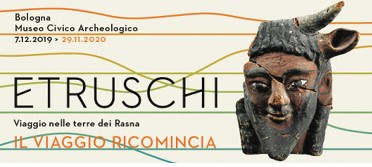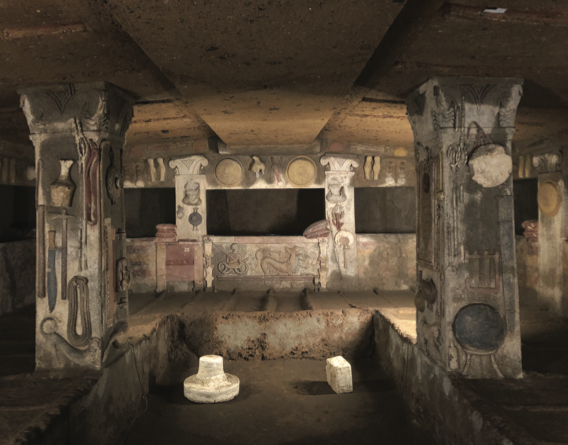A city finds its shape in time: streets, squares, buildings are the image and the trace of the life that is expressed in all its forms by those who lived there. Our duty is to keep it alive and give it a voice. Restore justice to those who have gone before us. In order to do this, we have to collect the evidence that allows us to read, interpret and reconstruct its history. There are places engaged in this. The Bologna Civic Archaeological Museum is certainly among these.

A museum is speaking to the community of its audiences in the words of those who care for and study the collections. With Dr. Federica Guidi, scientific advisor on the collections and responsible for communications, I exchanged some thoughts on her work as an archaeologist for the museum. The territory is a space that maintains the writings, preserves traces of times that do not belong to the past alone but remain coexisting in the present time. The museum has the task to make us understand it, to give voice to the testimonies it collects, not simple artifacts, but the signs of life. All the objects belonged to someone. Today as in the past, things are looking at us and speaking to us. This is how we are accompanied by the memory of all those people who lived before us, not just by the findings. After my conversation with Federica Guidi, I visited the exhibition Etruschi, A journey through the lands of the Rasna, now reopened until November 29, 2020. The exhibition has a purpose: show us the greatness of a civilization that has not been confined in a territory and in a limited time but that has exchanged relationships, experiences, techniques, and languages. They have been influenced and have been the model of other civilizations.

From the first main features of the culture and history of the Etruscan people, through objects and archaeological contexts strongly identified and contextualized, we move on to a second geographical section, where we make the journey through the lands of the Rasna, as the Etruscans called themselves. The exhibition is proof that the museum is a major reference point for studies and research on Etruscan civilization. For Federica Guidi, it is important to understand that we must free ourselves from a binomial that has had great literary fortune, but which does not correspond to the truth, the binomial of Etruscans and mystery. "Let us substitute the word mystery with the words wonder, discovery, fascination and return the word culture to a people that is not so mysterious. We will provide them some justice."




.png)